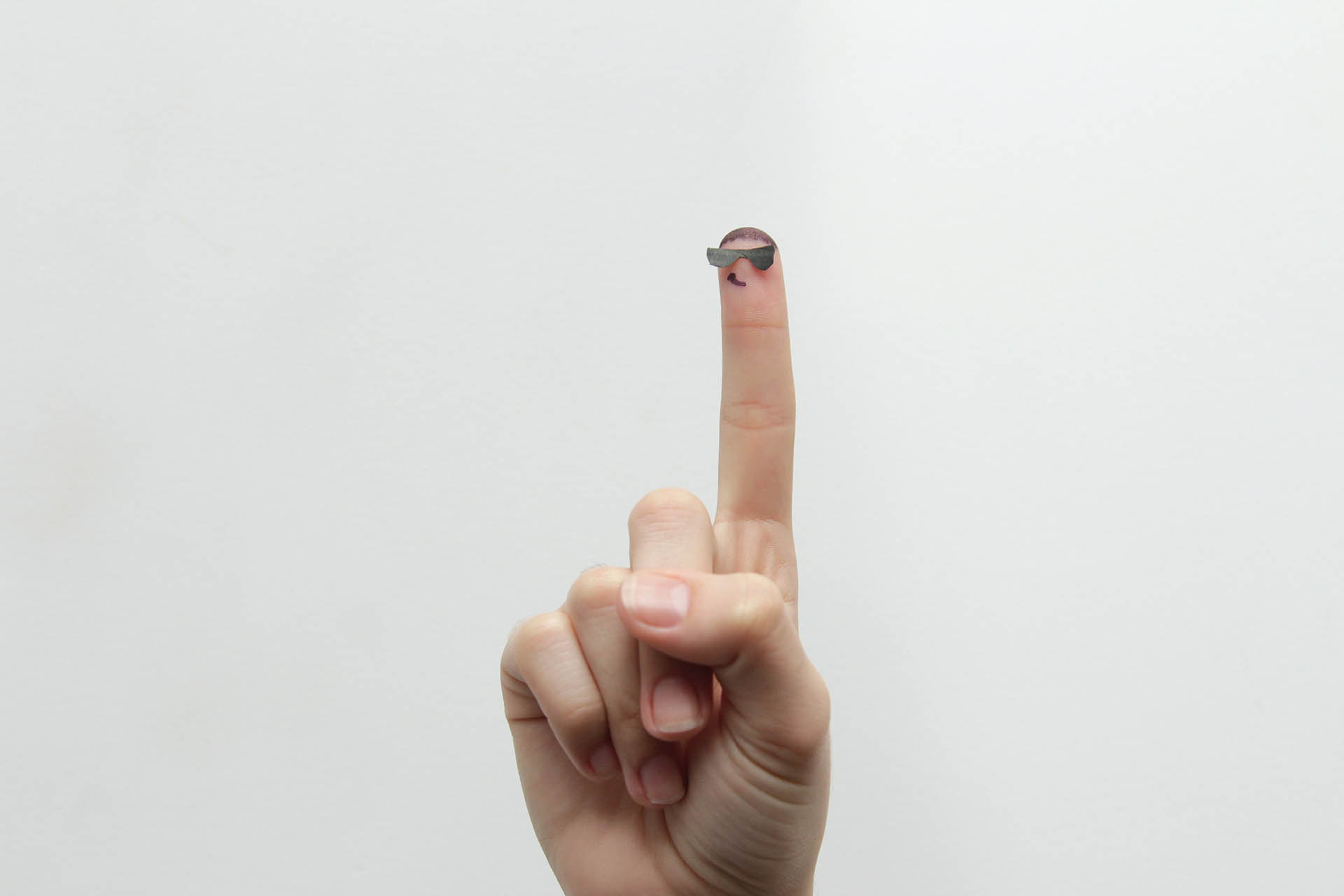Are likes a currency?
“Many people have the desire to be significant.”1 – Dale Carnegie
Anyone who is on various social media platforms recognises this desire 100, if not 1,000 times a day. People put themselves and their stories on display, they promote their expertise, show their likeness and market their services. They share videos and personal perspectives. They communicate and comment almost non-stop. The “reward” is followers, greater reach and likes. Followers, reach and likes are something nice for many people, an indicator of perceived importance. But are they also a modern form of currency?
The invention of the like button
The like button has been around for what feels like forever, but it was actually only introduced by Facebook in 2009. It was the joint work of a team that was supposed to solve a redundancy problem, as Leah Pearlman put it: “For example, if someone wrote ‘We’re getting married!’, then you had a lot of comments with ‘Congratulations! I thought that was aesthetically extremely ugly, but on top of that, the more personal comments were hard to find among all the redundant ones. So I wanted to solve two problems at once.”2
Internally on Facebook, a bomb and an awesome button, a plus sign, a star and the raised thumb were themed. The design and naming was a challenge. “Different symbols are considered inappropriate in some countries. Some words don’t work. ‘Awesome’ sounded too young, ‘Love’ too cheesy. The designers got more and more frustrated and left the project. In the end, we needed a new team. Then we had the design and Mark Zuckerberg said, ‘It’s going to be ‘Like’ with a thumbs up. Build it and get it out there. Done.”3
Today, the like can be found on probably all social media platforms. And of course there are also numerous, individual ways to express emotions. In LinkedIn, there are additional emojis for “Applause”, “Support”, “Funny”, “Wonderful” and “Inspiring”. On Facebook, “Love”, “Laughter”, “Surprise”, “Sadness” and “Anger” complement the like button.
Interestingly, there is no dislike button – at least to my knowledge – on any popular network. Even YouTube has abolished its dislike or no longer publicly displays negative ratings.4
Why do people like posts?
It is often a good idea to personalise a general question. So: why do YOU like posts?5 Maybe because you agree with the content or like the author and want to do something good for him or her?
There are people who like posts because they
- think the topic of the post is important.
- want to show the author that they have noticed the posting or comment.
- consciously want to increase the reach of the post. Some even do this with their own posts or comments.
- want to receive a like in return for their own post or comment.
- (want to) create a sense of community.
- want to make the post easier to find again on the platform at a later point.
These are very different reasons and a first indication that likes are rather not a currency.
The effect of likes
Likes have an effect at least
- in the direction of the algorithm of the internet platform or social media network and
- in the direction of people or users on these platforms or in the networks.
Likes are important for the dissemination of content. If B likes a post by A, then – at least theoretically6 – C and D, who “follow” B, could see A’s post in their timelines. If C now also donates a like, E and F, who are networked with C, could also see the post. The more likes a post receives, the more people see the content.
Interestingly, another thing happens when B likes A’s post: B is very likely to find A’s next post in his timeline. The platform’s algorithm thus actively intensifies A and B’s relationship.
And what is the effect of likes on people? In a word: different!
- There are people who are simply happy about a like and feel confirmed in their views.
- There are people who do not attach much importance to likes because they are not primarily interested in attention, but in capturing their own thoughts or exchanging content on selected topics.
- Some people feel intoxicated and significant through likes. Dale Carnegie sends his regards.
- Other people are disillusioned because they had hoped for or expected more perception and/or approval. They are puzzled by the “success” of other postings, sometimes they even feel envy or anger.
These effects are not exclusive. You can be happy about likes today and care less about them tomorrow. You can feel validated and hope for more feedback at the same time.
Interestingly, Justin Rosenstein, a former colleague of Leah Pearlman’s, explains that people often develop things with the best intentions that have unintended consequences sometime later.7 According to him, likes are part of today’s attention economy. They negatively affect people’s self-perception and can even lead to depression. Various studies confirm this8, but this leads somewhat away from the original question: Are likes a currency?
The monetisation of likes & co.
I would argue that likes are not a currency for 9,996 out of 10,000 people, because they do not pay a bill and at best represent a value when thought around the corner (see the effect on the algorithm).
Conversely, 9,996 out of 10,000 people means that for four people or groups of people likes represent a currency and can be monetised accordingly. These are:
- Influencers.9 Likes are often a sign of notoriety and reach, impact and opinion leadership for people with “influencer status”. They are paid for posts and comments, booked as keynote speakers for events, asked to give interviews or recruited as book authors. In the meantime, an entire sub-industry – so-called influencer marketing – deals with this topic. At least indirectly, this is proof that likes are also a currency.
- Personal Brands. Likes are important for personal brands because they help to draw attention to themselves in order to convey individual competencies and skills that people remember and that ensure trust.
- Superstars. The vast majority of people will not manage to gain several hundred thousand or even millions of followers. However, platforms have an interest in promoting “special” people in particular. “Superstars” offer orientation, they are benchmarks and role models. For a long time, a platform like Twitter did not want to block Donald Trump because he kept the platform in the memory of news agencies and platform users. Such “superstars” should not in themselves need to think about monetising likes, even if they help spread opinions (see again the effect on the algorithm) and that is certainly worthwhile in very many places.
- Sellers of likes. On the internet there is actually the possibility to buy likes. With the help of a simple Google search, you will quickly find a variety of offers for practically every platform. And why do such offers work? Because likes have an effect on people, so much so that some are willing to initiate the effect artificially and for a fee. The sheer existence of such offers unfortunately proves this effect.
So if you are neither an influencer, personal brand nor superstar, and you don’t sell likes as a service, you are in very good company. 9,996 out of 10,000 people belong to this group.
Conclusion
Likes have an effect in the direction of algorithms and people. The reasons why people distribute likes vary just as much as the individual attribution of meaning. Of course, you may personally be happy about likes to posts, videos or comments; I am also happy about them, even if the underlying motivation of the person doing the liking often remains hidden.
For the vast majority of people, likes are not a currency, but for some people or groups of people – influencers, personal brands, superstars and sellers of likes – they can act as a currency. What this currency is worth is revealed by Google or, more recently, ChatGPT.10
Notes (partly in German):
[1] Dale Carnegie: Wie man Freunde gewinnt
[2] [3] Vice: Die Erfinderin des Like-Buttons hat kein schlechtes Gewissen
[4] Abschaffung des Dislike Buttons auf YouTube
[5] The question “WHAT do people like” is also interesting. Unfortunately, the answer “almost everything” is only correct at a very superficial glance. The answer depends on many different factors, such as the social media channel, the device used, the age of the user and individual preferences. A good overview of the use of social media and current information on internet usage in Germany is provided by the ARD/ZDF-Onlinestudie.
[6] There are various aspects that limit the dissemination of content. A central aspect is the amount of information that is published: On Twitter, for example, 456,000 tweets are sent per minute, which corresponds to about 656 million tweets per day. In addition, users are not online around the clock and thus often miss postings from “close” contacts.
[7] The Guardian: Our minds can be hijacked
[8] If you are interested, see Engaging With Social Media Can Drain Your Brain
[9] In my opinion, all people are influencers. And we are all influenced. I am happy to recommend the book The Invisble Influence by Jonah Berger.
[10] Statement from OpenGPT: “The value of a like on a social media platform can vary depending on the platform, the target audience and the specific context. In general, however, it is difficult to assign a specific monetary value to a like on a social media platform. A ‘like’ on a social media platform can be seen as a form of engagement and may indicate that the content resonates with the target audience. This can be very valuable for businesses or individuals looking to build their brand or generate leads. However, the value of a like in terms of revenue generation is uncertain as it depends on the conversion rate of likes to sales. In addition, some companies use likes as a metric to determine the popularity of a post, profile or page, and this metric is not directly monetisable. It is worth noting that there are companies that sell likes, followers, views, etc. on social media platforms, but these are often generated by bots and do not represent genuine user engagement or interest.”
If you like the post or want to discuss it, feel free to share it with your network.
Michael Schenkel has published further articles in the t2informatik blog, including

Michael Schenkel
Head of Marketing, t2informatik GmbH
Michael Schenkel has a heart for marketing - so it is fitting that he is responsible for marketing at t2informatik. He likes to blog, likes a change of perspective and tries to offer useful information - e.g. here in the blog - at a time when there is a lot of talk about people's decreasing attention span. If you feel like it, arrange to meet him for a coffee and a piece of cake; he will certainly look forward to it!


